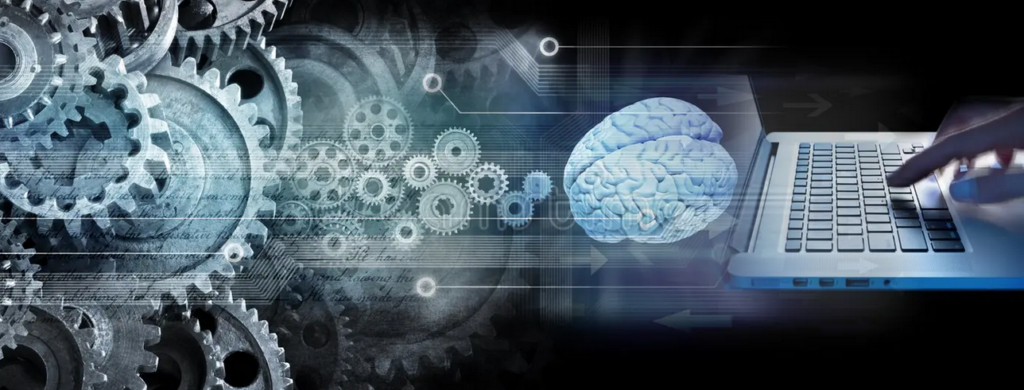
BEFORE and NOW
I previously worked in the information management department in various positions. Many of my routine tasks are now fully automated. For example, software updates are automatically scheduled. Passwords can be renewed without visiting the help desk. The connection to the customer’s computer is managed using secure remote connection tools. This has freed up time and resources for more complex tasks.
Now I work as a education designer. Digitization makes it possible to do remote work even more widely, which brings flexibility to my work and the possibility to work from anywhere.
Education is also changing: Now and in the future, digital platforms offer opportunities for distance learning and further education in online education. Sector-specific and supplementary suitable courses can be found in the current and maintained training offer, and if necessary, I can also teach the technical use and content production of the courses myself.
In the early days of my career, we built computers and devices from start to finish from the components ourselves and installed the operating system and programs. Maintenance was machine-specific. The licenses were also machine-specific. We installed the programs disk by disk and it was a patient effort, because if an error occurred, we had to start from the beginning.
Installation and maintenance became easier with network disks and servers. Data networks became faster and users were also greatly relieved by the widespread use of wireless networks. Customer-friendly prices made it possible to acquire personal devices, and having your own mobile phone was something completely revolutionary! Before, to get service at a bank, for example, you had to go there. Now I can use my mobile phone to do banking, shop online, monitor my health and so on. Many things have become easier with digitization. The children of the 21st century don’t seem to understand this ease of living.
FUTURE
In the future, for example, IoT (Internet of Things): household appliances, vehicles and other devices will be interconnected and automate many everyday functions. Digitization makes it possible to improve the availability of services. Online stores and digital marketplaces are changing traditional trading and consumer buying behavior.

OPEN DIGITAL SOCIETY
Digitalization changes our lives and work in many ways, offering both opportunities and challenges. It is important to be ready to adapt and develop with technology and to ensure that the benefits of digitalization are distributed equally to all members of society.
When assessing the risks of an open digital society, it is important to pay attention to several factors, such as privacy protection, data leaks, abuses and data leaks of personal data, which can cause significant problems for individuals and organizations.
Continuous website monitoring and profiling can limit privacy and freedom.
Cybercrime and cyberattacks can cause significant damage to both individuals and organizations. Data theft is increasing, stealing sensitive data can lead to identity theft and financial losses.
The digital divide increases discrimination and reduces equality. An open digital society should be accessible to everyone. However, the lack of digital skills and resources can lead to a deepening of the digital divide.
Imprecise algorithms and distorted or intentionally distorted data can lead to incorrect results and interpretations.
Misinformation and disinformation spreading in the digital environment can influence public opinion and decision-making.
Synthetic media content made possible by deepfake technology can cause serious consequences with the spread of false messages and manipulation.
Addiction and health problems will increase, such as digital addiction and mental well-being.
Excessive use of digital services can cause addiction and negatively affect physical and mental health.
Constantly being online and comparing social media can increase stress and anxiety.
Digital surveillance mechanisms can limit freedom of speech and individual liberties. Content restrictions and censorship implemented by the authorities can prevent the transmission of information and free discussion.
Conclusion:
The risks of an open digital society must be taken seriously and prepared for with appropriate strategies and measures. This includes strengthening data protection and data security, promoting digital literacy, combating discrimination and defending democratic principles and individual freedoms.
GDPR
The entry into force of the General Data Protection Regulation (GDPR) in 2018 brought with it both positive and negative effects.
Positive effects are for example the individual’s data protection and rights were strengthened. GDPR strengthened the individual’s right to their own data protection and gave them more power to manage their own data. Organizations’ responsibility increased. Organizations had to comply with stricter data protection rules and be responsible for the appropriate processing of personal data. Data security improved. GDPR encouraged organizations to invest in data security and prevent data breaches and data leaks. The GDPR had a global impact and encouraged other countries to adopt similar data protection rules.
Negative effects are for example Small Business Costs: Small businesses may have incurred significant costs to comply with GDPR and implement data security measures. GDPR brought with it more red tape and administrative burden for organizations that had to update and revise their data protection policies. In addition, GDPR’s strict rules could create barriers to international trade, especially if organizations were unable to meet the requirements. There could be some overreaction, when some organizations are afraid of violating the GDPR so it may have led to excessive data processing.
Conclusion:
Although GDPR brought with it challenges and costs for organizations, its positive effects on individual data protection and information security were significant. GDPR has created a foundation for better protection and use of personal data and promoted respect for individual rights in the digital world.
CHATGPT
Artificial intelligence can answer many questions and tasks correctly if it is properly trained and fed with enough relevant information. AIs like ChatGPT are based on machine learning and neural networks that can learn complex patterns and regularities from large amounts of data.
However, AI also has its limitations, and its ability to respond correctly depends on many factors, such as:
Chat GPT and other artificial intelligences need sufficient and high-quality information for training. An AI model must be complex and accurate enough to answer complex questions. In order for the answers to be as desired, clearly formulated questions help the artificial intelligence to understand the questions better and give more accurate answers. It is important to note and remember that the abilities and limitations of artificial intelligence may vary depending on its training, model and application.
For me, artificial intelligence is of little use at the moment, but in the future, artificial intelligence can become a big help. I only got indicative answers to the questions I asked. Critical media literacy is necessary anyway if I use artificial intelligence.
SELF EVALUATION
What I learned:
Versatile use of technology. I have learned many ways to use technology for different purposes, such as information retrieval, communication and as a source of entertainment.
The positive and negative aspects of diginative behavior. I have gained experience in how different people communicate and act in a digital environment in different ways.
I have become even more aware of the importance of online security and have learned to use different tools and methods to protect my information and privacy online.
Increasing digital interaction. I am experienced in interacting with others in digital environments such as forums, social media and email.
What should I know more about:
Latest technologies and trends: I should stay better informed about new technologies and digital trends in order to provide up-to-date information and assistance.
Dynamics of Online Communities: I would like to better understand the social dynamics and norms of interaction in online communities so that I can be a better part of these communities and provide value to their members.
Digital ethical issues: It would be important to deepen my understanding of digital ethical issues such as data protection, online security and digital inequality in order to provide responsible and ethical help and advice when needed.
With the help of this self evaluation, I aim to continue learning and developing in the digital environment, so that I can be an even more useful and competent support for myself and others in the digital world.

